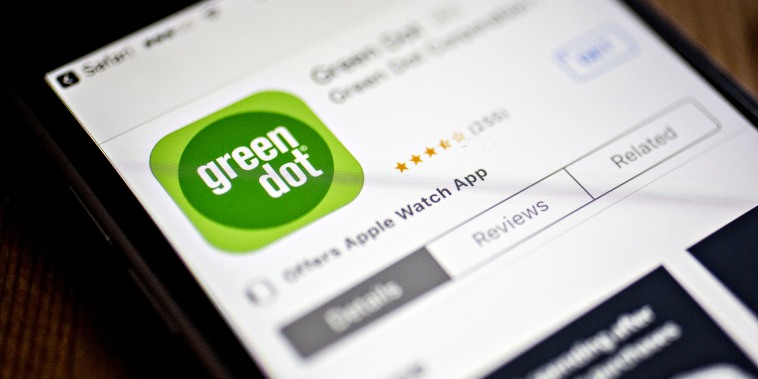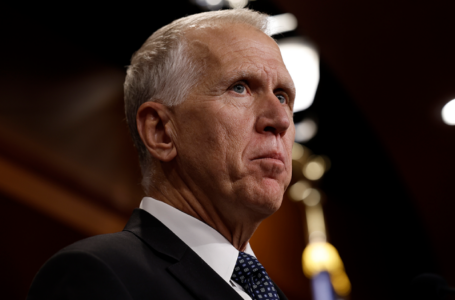Accounts of child survivors shed light on surge of rape and sexual violence in conflict-torn DRC
Walmart-linked Green Dot Bank receives proposed Federal Reserve order over allegedly faulty consumer practices


Green Dot Bank, best known for partnering with Walmart to provide basic digital banking services to customers, said it has received a proposed consent order from the Federal Reserve over allegedly faulty consumer protection and anti-money laundering practices.
In a filing this week, Green Dot said the consent order — a type of agreement with a regulator that can entail increased monitoring, specific directives and enforcement — relates to activities that stretch back as far as 2017. It noted new leadership had begun arriving in 2020, with current CEO George Gresham appointed in 2022 — but did not specify whether the order covered issues that had occurred since.
Green Dot estimated that its liability related to the proposed order could be $20 million, but warned investors that losses could reach as much as $50 million, according to the filing. Its stock closed down 2% Friday.
In an earnings call this week, Gresham said Green Dot does not expect any “incremental restrictions to be placed on our business or operations.”
“We take regulatory compliance very seriously, and we have invested considerably in people, in time, and process improvement and product improvement and in money to improve our capabilities in this regard,” Gresham said, according to a transcript of the call. “We are not the same management team or the same company that we were in 2017.”
A Green Dot spokesperson provided an additional comment in an email: “We’re confident about our financial and regulatory positions today and are committed to partnering closely with our regulators to ensure customers are well-served and protected, and that our products are designed and marketed with our customers’ best interests at the forefront.”
A spokesperson for the Federal Reserve said the regulator did not have a comment on the matter.
NBC News reported last summer that some customers had found they were suddenly unable to access their accounts, or had them frozen or closed outright, often with minimal explanation or recourse.
Green Dot subsequently acknowledged that recent tech conversions in its operations had caused temporary outages for “very small segments of customers,” and that ones whom the bank confirmed had been affected were subsequently issued courtesy credits.
It’s unclear whether the proposed consent order is related to these recent customer issues.
In October, the Better Business Bureau noted Green Dot had not responded to an inquiry about a “pattern of complaints” regarding locked accounts and lack of customer support.
In an email, the Green Dot spokesperson said the company was not required to respond to BBB complaints since it is not a formal regulatory body, and Green Dot had stopped paying the BBB in 2022. She added Green Dot also informed the BBB about the company’s technology-conversion period, during which complaints spiked, last fall.
Green Dot may be best known for the reloadable debit card it sells at Walmart under the brand Walmart MoneyCards. Thanks in part to this partnership, Green has opened some 67 million accounts over the past decade or so.
A Walmart spokesperson did not respond to a request for comment regarding Green Dot’s announcement of the proposed consent order.
Green Dot also partners with Turbotax and its parent company Intuit on a banking card that allows customers to access their IRS tax refunds.
In an email to NBC, the Green Dot spokesperson acknowledged that “a few isolated incidents” involving customers unable to access their taxrefunds had been “quickly resolved,” noting the Green Dot platform had received a number of updates and improvements last year.
“We’re pleased with how quickly and efficiently refunds are being processed and customers are receiving access to their funds,” she said.
Green Dot also sometimes requires some customers, especially those with larger refunds or those who present other common risk indicators, to provide additional verification to access their money, the spokesperson said.
“A small portion” of refunds required these steps, she said, but they have now been fully processed and the funds have been deposited to customers.
Intuit did not respond to a request for comment regarding the news of the proposed consent order.
Green Dot further disclosed this week it is facing a proposed class action suit by a customer related to last year’s outages. The company said it has filed a motion to compel arbitration with the plaintiff and halt the suit, which was filed in October in Texas, where Green Dot is domiciled. Green Dot said it is awaiting a ruling from the District Court for Travis County, Texas on its motion.
Dave Mayo, CEO of FedFis, a financial institutions data analytics and strategy system; and founder of the Bankers Helping Bankers Association, said consent orders like the one Green Dot may now be facing are becoming increasingly common for new financial-technology players — but that this is a sign of a healthy, maturing market.
“None of this from what I’ve seen is life threatening to the institution, or presents a systemic risk in the banking system — we haven’t seen anything to get us concerned,” Mayo said. “When regulators get really involved and clean up — that’s actually a positive evolution.”











